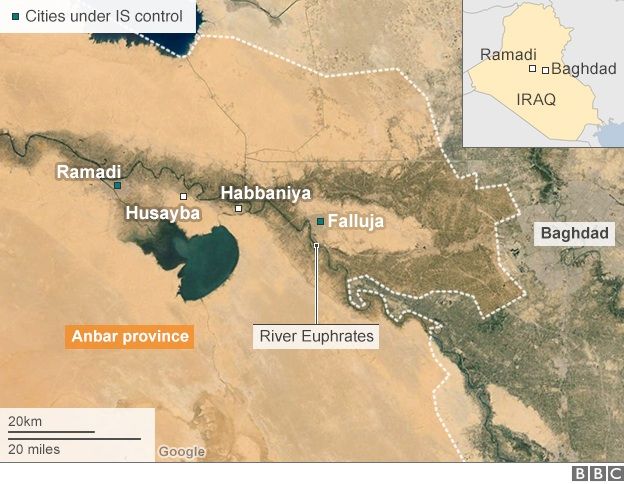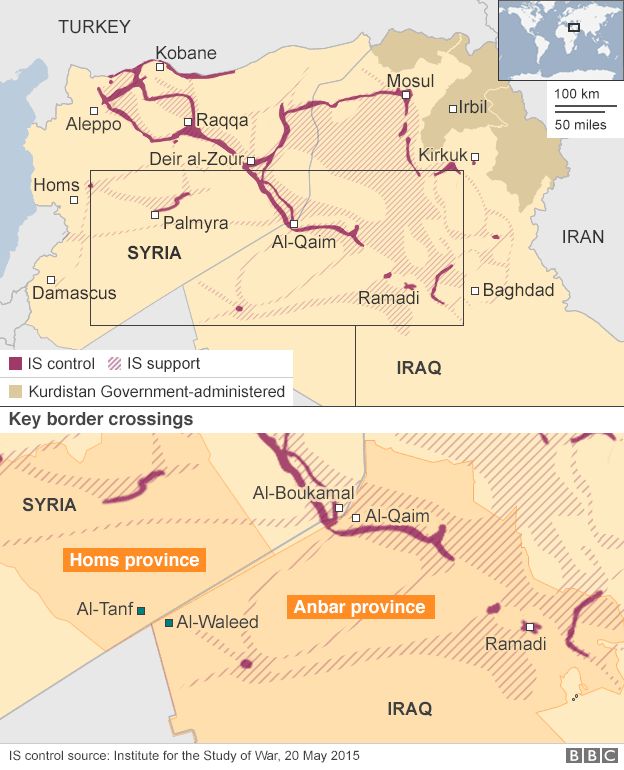Iraqi Military on the Run
"What apparently happened is the Iraqi forces just showed no will to fight. They were not outnumbered. In fact, they vastly outnumbered the opposing force."
"We can give them training, we can give them equipment - we obviously can't give them the will to fight."
"We can participate in the defeat of IS. But we can't make Iraq... a decent place for people to live. We can't sustain the victory, only the Iraqis can do that. And, in particular in this case, the Sunni tribes to the west."
American Secretary of Defence, Ashton Carter

Universal wisdom has it that when two antagonists face off against one another, those fighting to defend their home turf have the advantage. The passion and determination of defending their own territory is meant to strengthen their resolve and their courage to uphold the honour of a country's first duty; to defend its citizens, its sovereignty, its pride. The opposing army, which invades has territorial ambition, but is felt to be less integrally invested in protecting its investment in ownership.
What has happened in Iraq, and in Syria as well, appears to turn that wisdom on its head.
"[Mr Carter] was very supportive of Iraq and I am sure he was fed with the wrong information. [Ramadi would be freed from ISIS's hands] in days.""[The US had failed to provide] good equipment, weapons and aerial support [at Ramadi and meant to] throw the blame on somebody else" countered Hakim al-Zamili, head of Iraq's parliamentary defence and security committee. Whose accusation represents a mirror-image match to the performance of the Iraqi military. The United States' commitment to training Iraqis, to enable them to defend their homeland, and to provide them with robust war machines to give them the advantage over Islamic State, only to see their mentoring come to naught, and their financial investment seized by the terrorists speaks to the real story.
Iraqi Prime Minister Haider al-Abadi
 |
| Iraqi commandos training under the supervision of soldiers of the US 82nd Airborne. Photo U.S. Army |
It is estimated by Western intelligence that the Islamic State militias number in total some 30,000 fighters. And the figure for the Iraqi military stands at roughly 150,000. They are obviously demoralized, they are obviously fearful of Daesh whose reputation for enjoying the commission of atrocities has been borne out by the evidence that they disseminate in the form of videos amply demonstrating their penchant for instilling terror through bloody barbarism. And a regular army is not accustomed to fighting urban battles, from street to street, house to house, giving Islamic State the guerrilla advantage.
The loss of Ramadi to Islamic State has had further ramifications, apart from the fact that the Iraqi military has shown itself to be led by fear more than courage, abandoning their positions, 'forgetting' the training they received from the Americans, and leaving behind U.S.-equipped tanks, artillery pieces, armoured personnel carriers and Humvees to further advantage the Islamic State. Just 70 miles west of Baghdad, Ramadi represents a major blow to the Iraqi government, not just an embarrassment, creating tens of thousands of new refugees in the process.
The Iranian-linked Shia militiamen who have been deployed to the Sunni province may have more in common in fighting skills with Islamic State; they are each seasoned in the kind of warfare that rose from the Bedouin, Muslim culture of Medieval-era barbarism. But sending Shiite militias to a Sunni province creates its own risks of atrocities from both sides. As it is, rumours have it that Islamic State terrorists slaughtered at least 400 people, women and children included, in Palmyra since winning that ancient city as well from Syrian troops.
Now, Islamic State, despite the U.S.-led airstrikes, not as effective as they should have been, because of lack of coordination on the ground, that could have lead to better and more reliable intelligence, and the seizure of the last Syrian government controlled border crossing with Iraq, is left in control of 50% of Syria, and a third of Iraq.

Labels: Conflict, Iraq, Islamic State, Shiite, Sunni, Syria, United States

<< Home